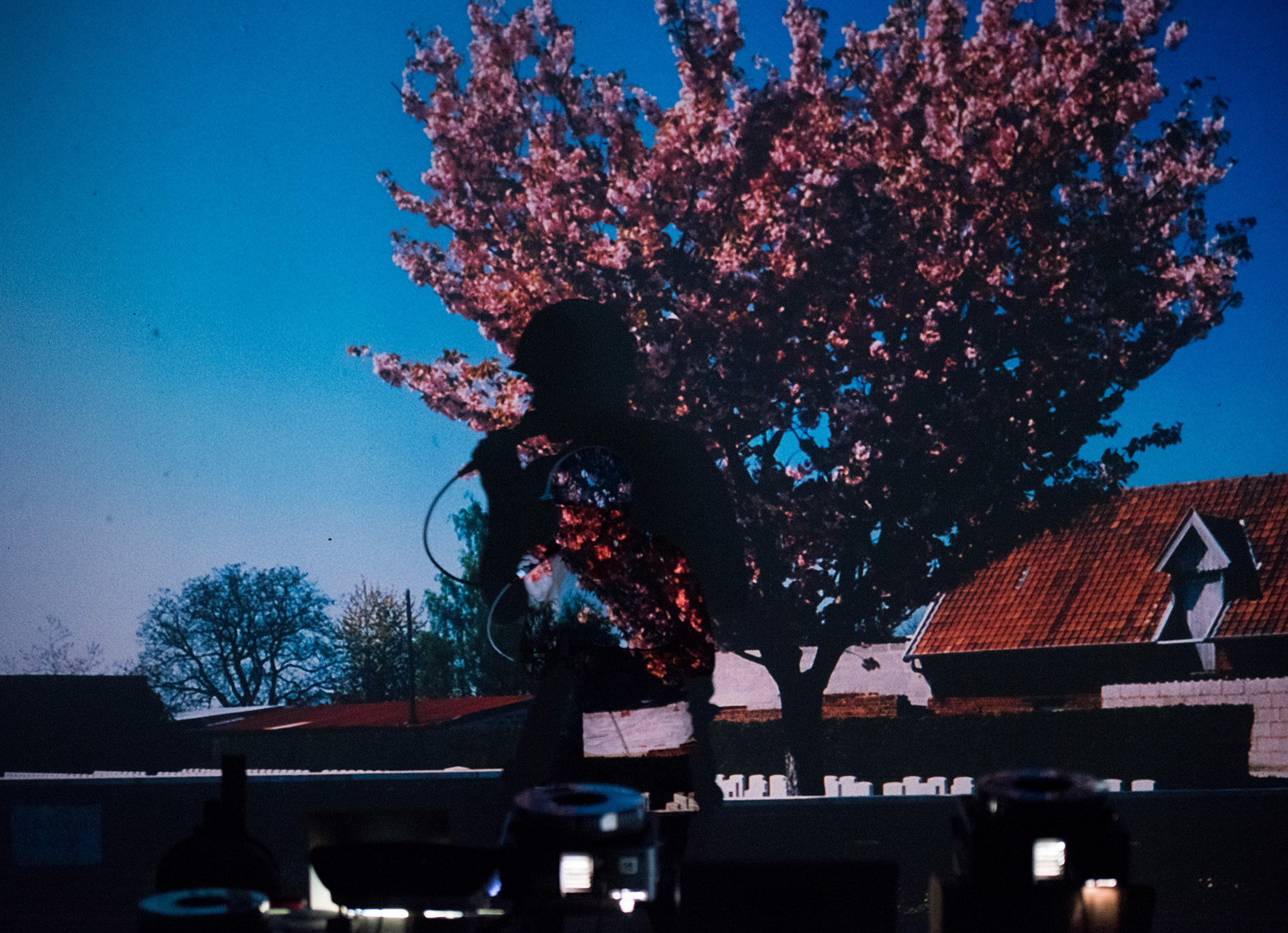
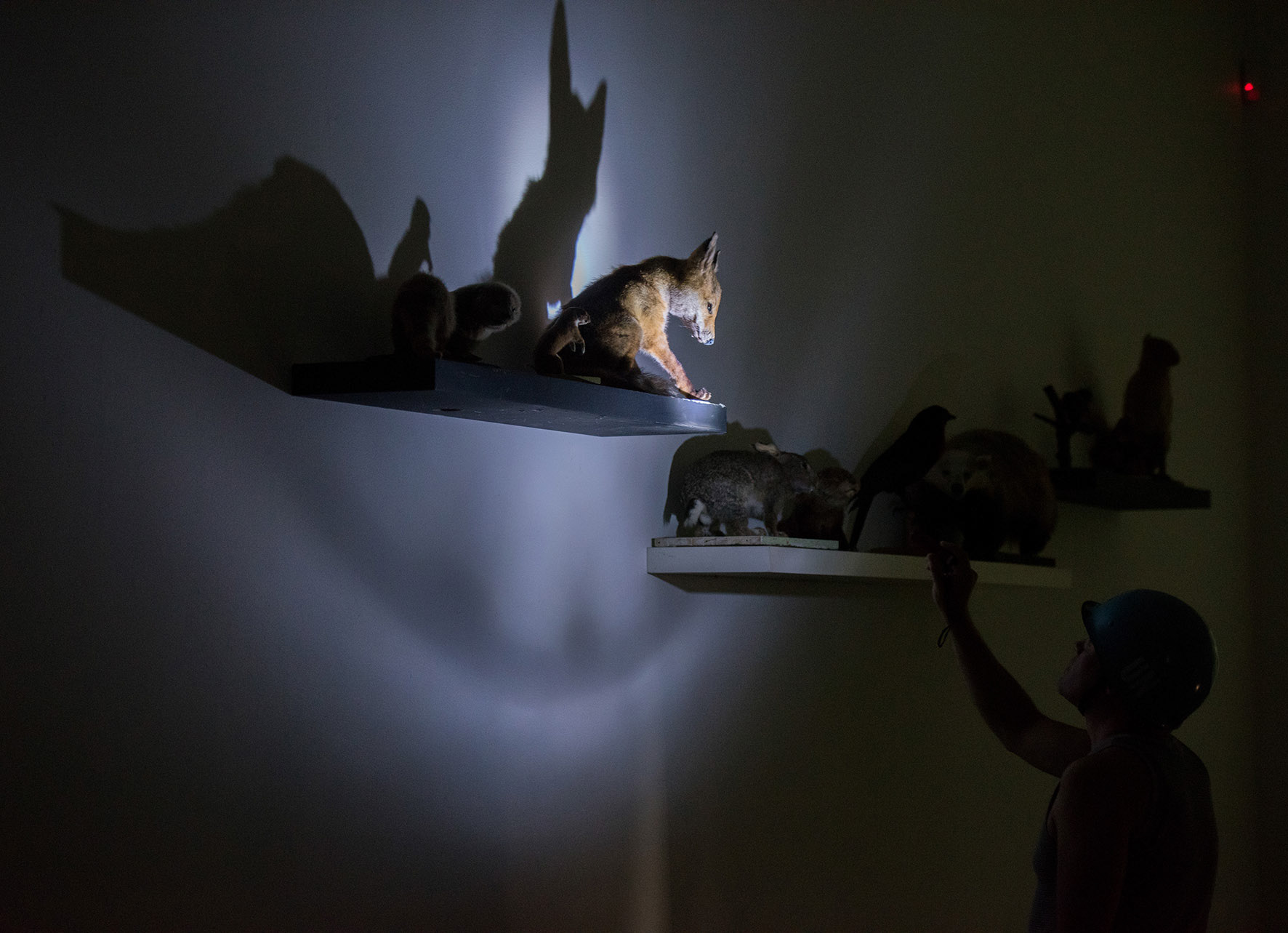
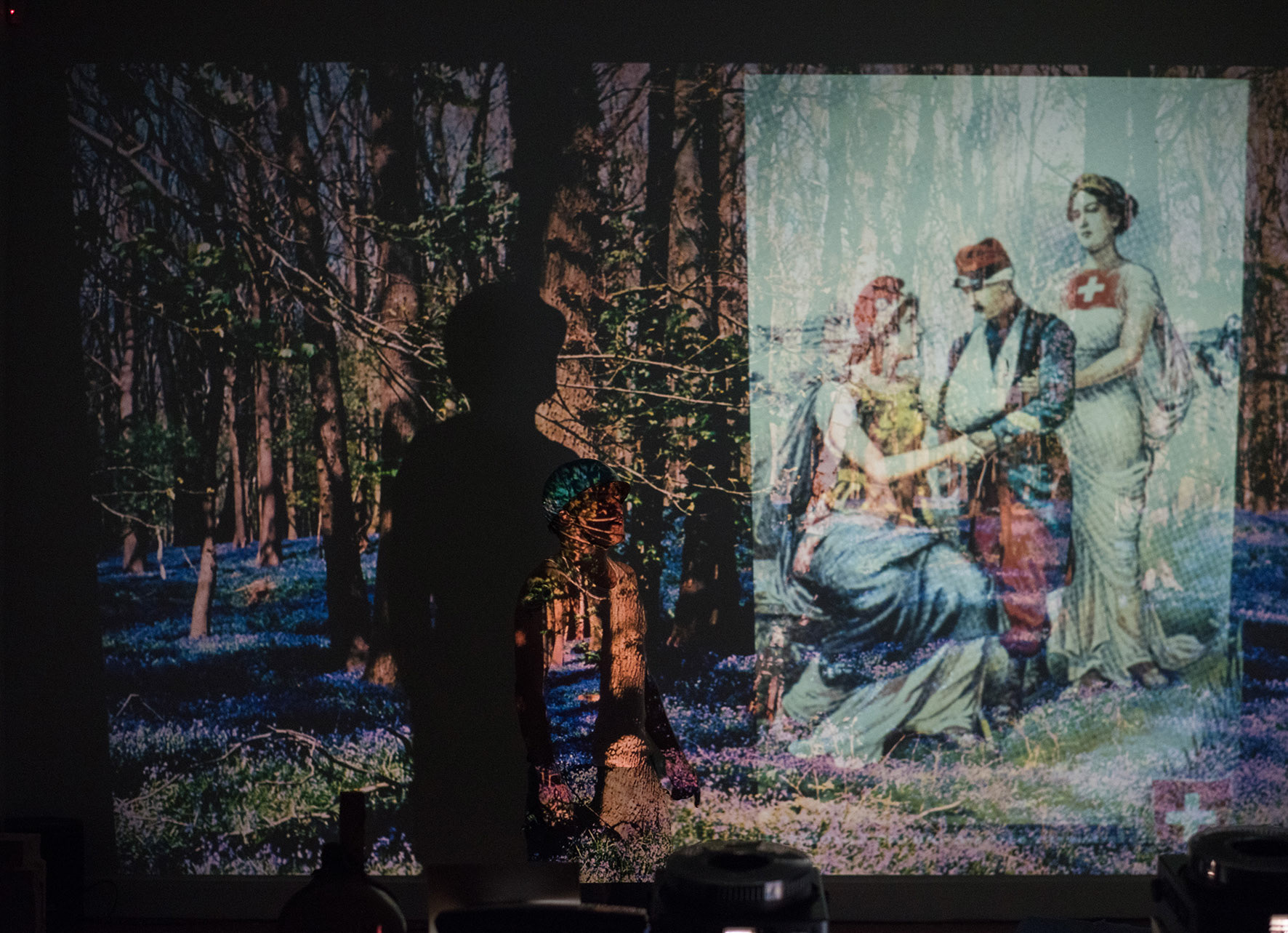
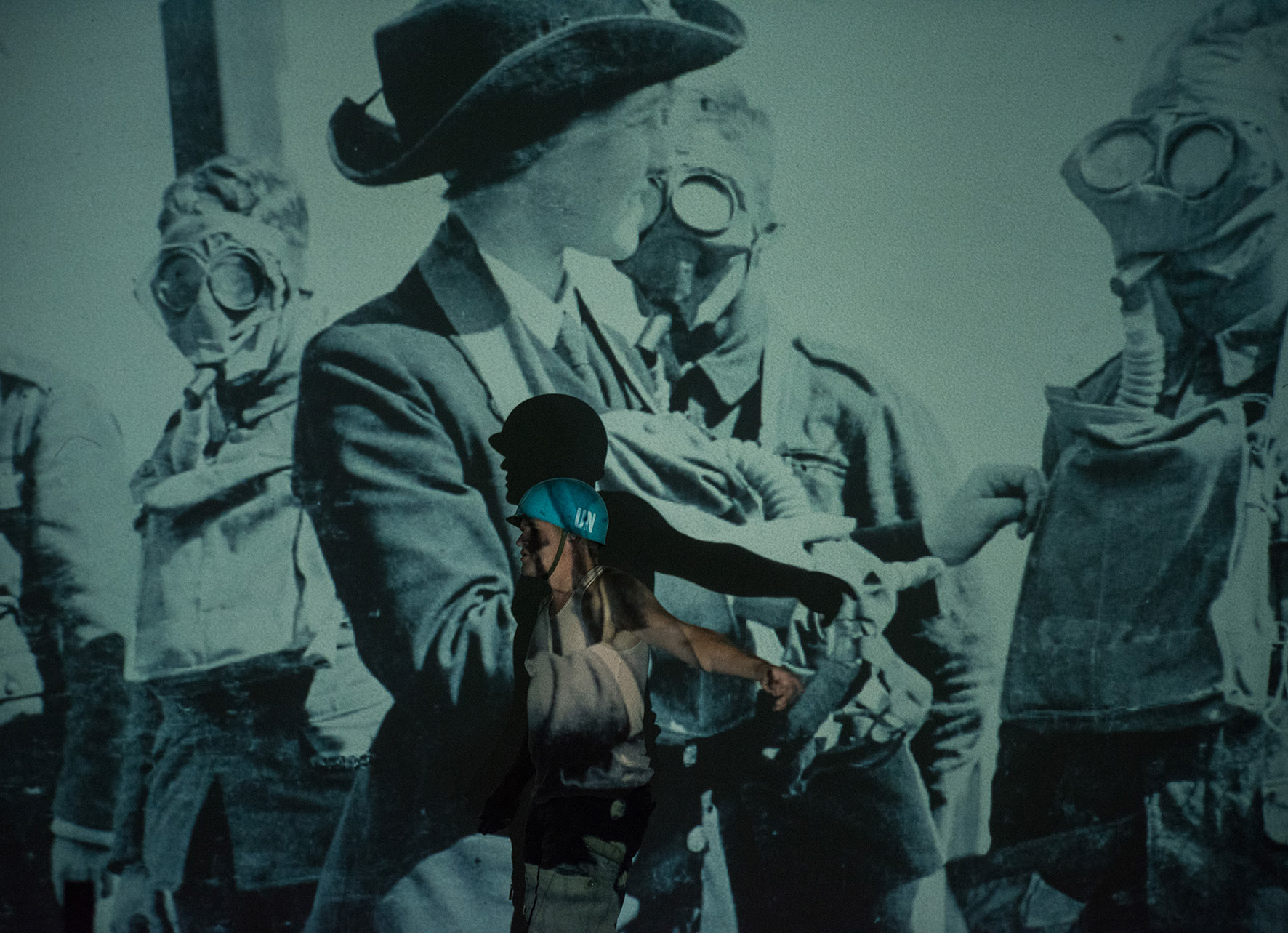
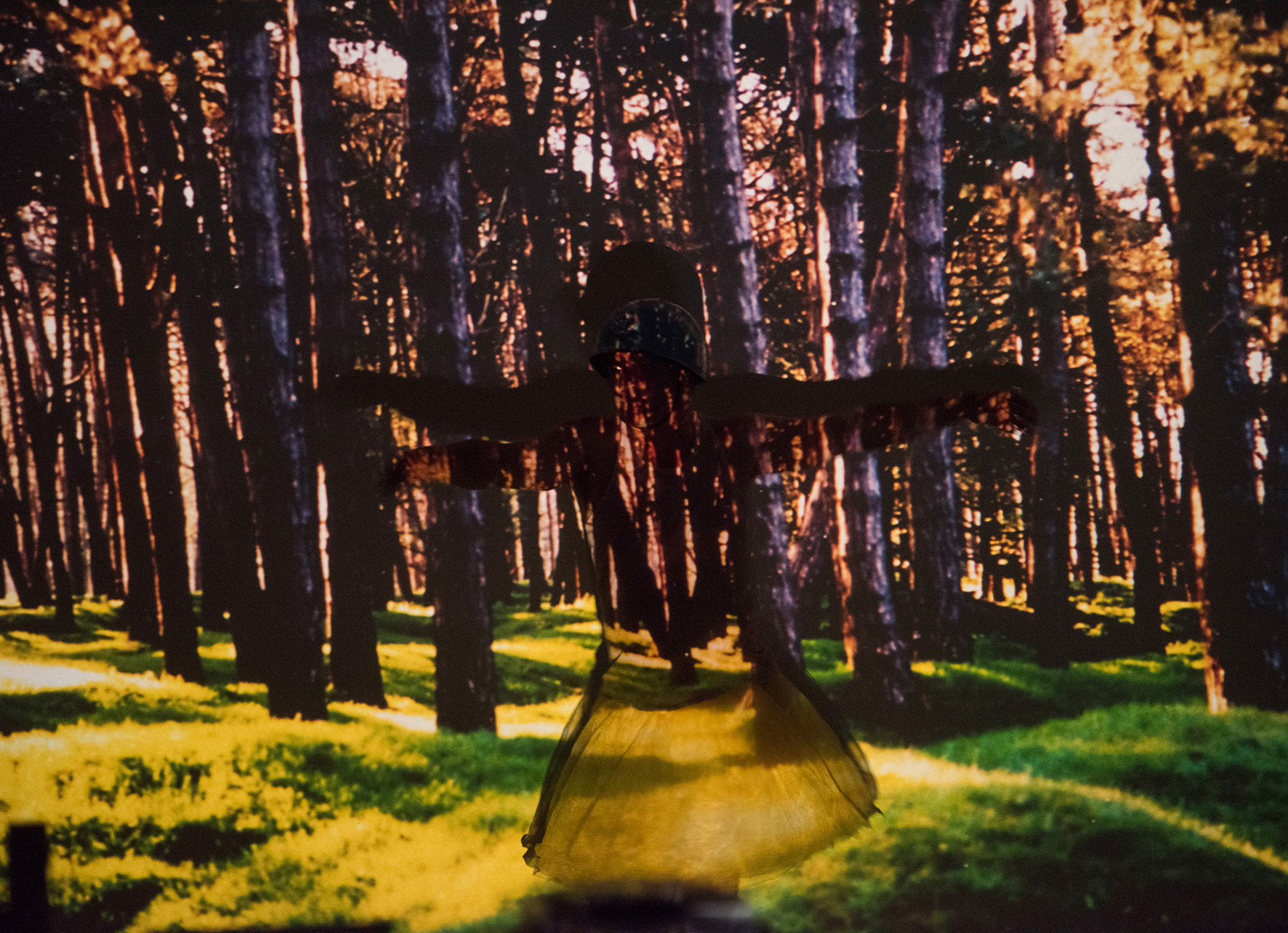
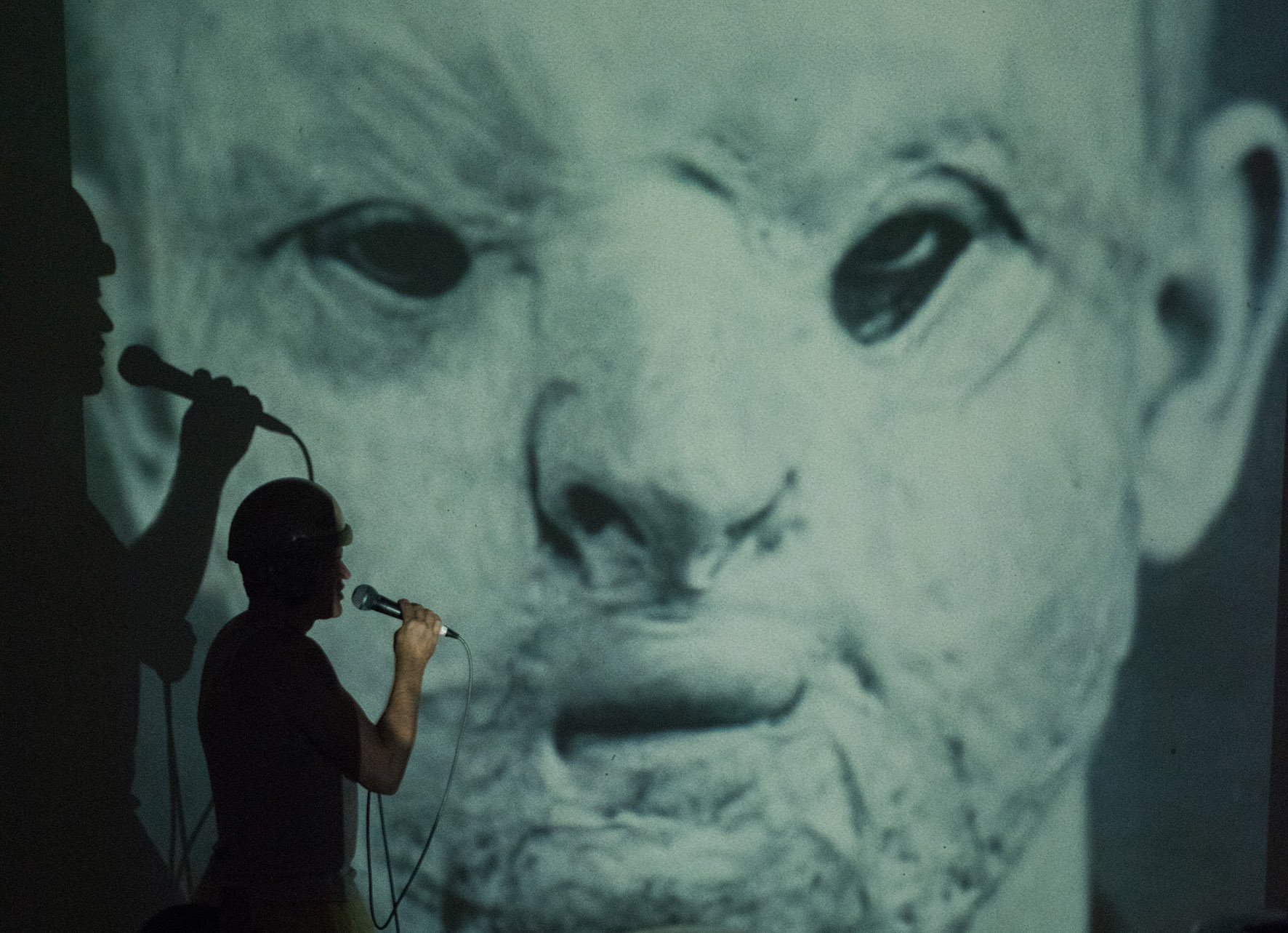
Live performance at Chapter Arts/Cardiff September 2014 Artistic engagement about 100 years of World War 1 In order to visualize a perspective of relevant present-day consequences, it is presupposed that zombies and cyborgs are significant creations to emerge from World War I. Be it allegorical or symbolic, looked at in their historical context both creatures possess the potential of diverse synapses from all areas of today’s society, from pop culture to the newly emboldened nationalism. Looking at the idea of the zombie, as a fallen angel or a rotting mythological hero, we can illustrate the loss, suffered by European culture in World War I, of the ability to transform real events through mythology into a story of salvation. A crucial role is played by the dissolution of, or fundamental shock to, concepts such as material and matter, nature and culture, or landscape and civilization, as classical requirements for societal creation mythologies. The cyborg on the other hand, already carrying within itself the original conflict between nature and machine, holds at the ready new potential in the post-humanistic discourse in the context of mythology and science. It can be said quite generally that when events became too horrific to express, when rationality came up against its limits, then the task of mediation, in the Christian, humanist tradition, fell to mysticism. This mysticism however, crushed and dissolved as it was in a mass of mud, found its replacement in the fantastical, where the genres of horror, science fiction and fantasy, accelerated by the cinema, act as the catalyst for society’s coming to terms with collective trauma. Museum culture, with presentations of historically certified relics and multimedia titillation in places of pilgrimage such as Verdun, merely serves the purpose of pop-science absolution.





